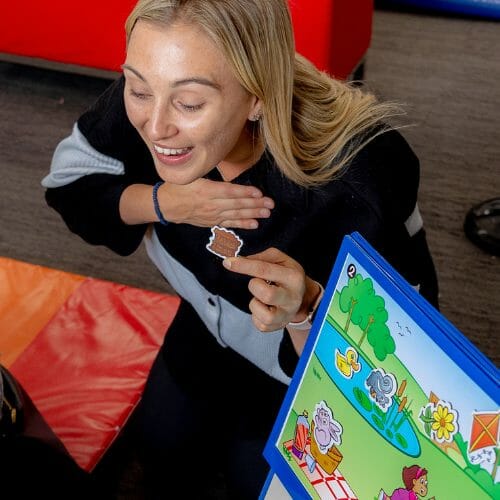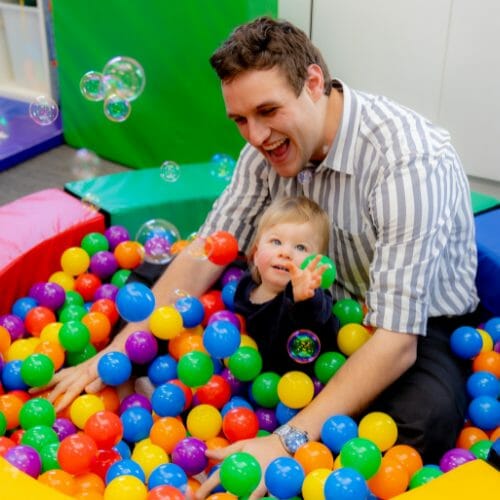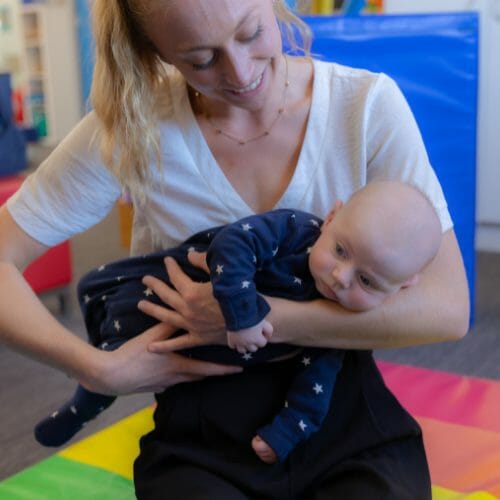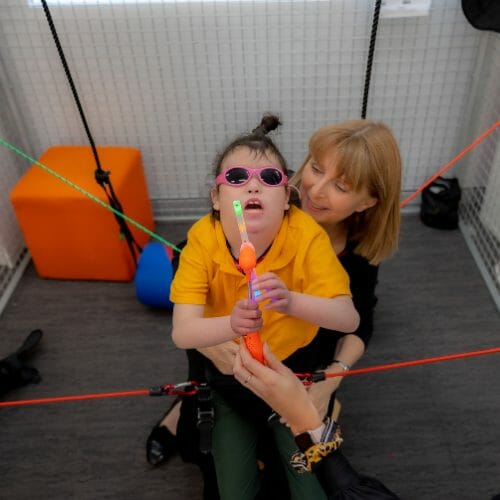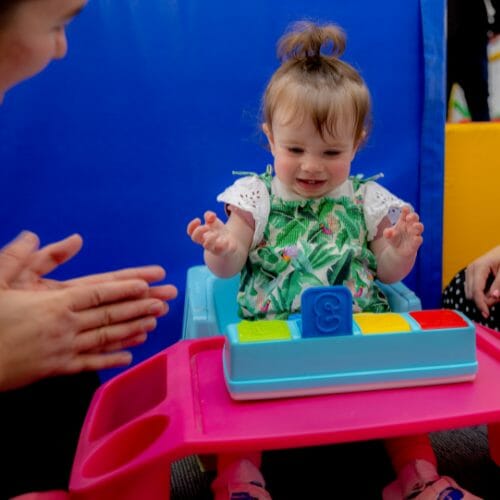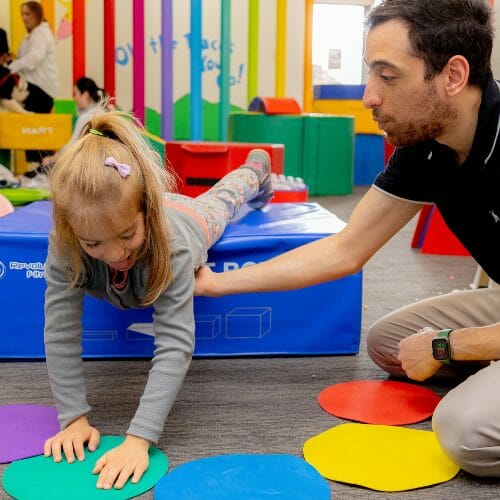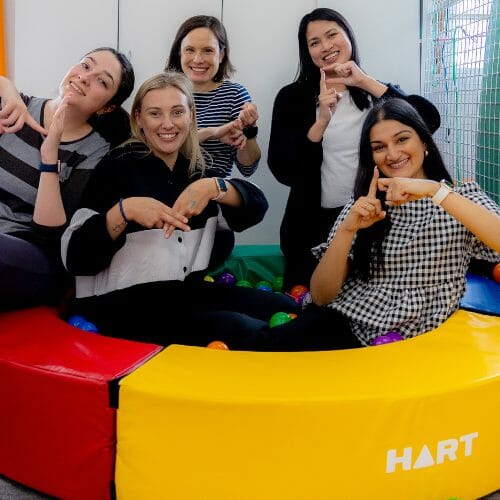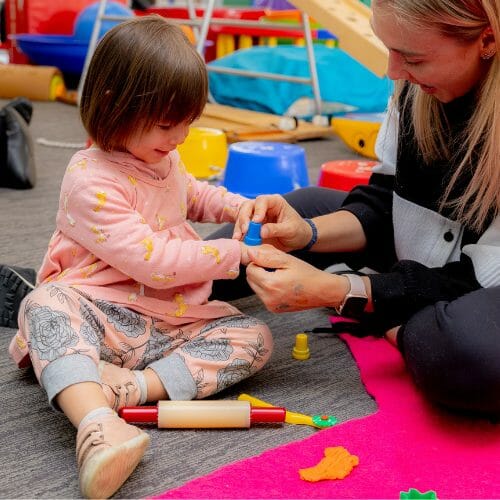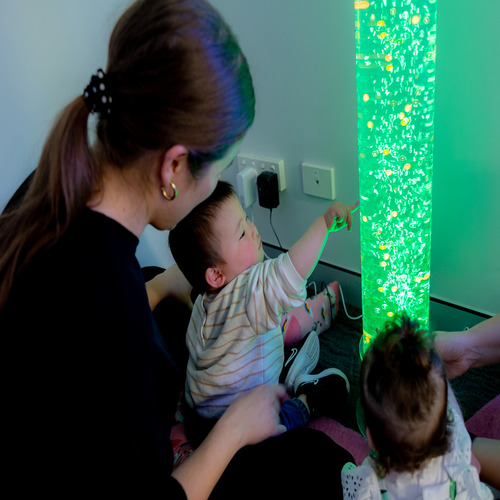Parents and caregivers of children who will not eat are faced with a difficult and often puzzling challenge. Because the interplay between a child’s experience of food and their ability to eat it can be complicated, there is rarely an easy solution when a feeding problem arises. Developed over 30 years ago by Dr. Kay Toomey, the SOS Approach to Feeding program is an effective way to assess and address problematic feeding behaviors in a variety of settings and populations.
In the SOS Approach, the feeding problem is conceptualized as the tip of an iceberg. The child’s difficulties with eating and gaining weight is what everybody sees, but similar to an iceberg, it is what is under the water that crashes the boat. The SOS Approach to Feeding stands for Sequential-Oral-Sensory because these are the major components of the program. In the SOS Approach to Feeding, we assess and address all of the underlying (“under the water”) causes of the feeding difficulties.


SOS uses a transdisciplinary team (which may include Paediatric Psychologists, Pediatricians, Occupational Therapists, Registered Dietitians, and Speech Pathologists) to evaluate and treat the “whole child” including:
- Organ systems
- Muscles (including oral motor)
- Sensory processing
- Learning, behavior, and cognition
- Development
- Nutrition
- Environment
We Play with a Purpose
Based on and grounded philosophically in the “normal” developmental steps, stages and skills of feeding found in typically developing children, the SOS Approach focuses on increasing a child’s comfort level by exploring and learning about the different properties of food. The program allows a child to interact with food in a playful, non-stressful way, beginning with the ability to tolerate the food in the room and in front of him/her, then moving on to managing the smell of the foods, learning about how foods feel on the body and in their mouth, and then enjoying tasting and eating new foods following the Steps to Eating.
- Any condition approved for NDIS funding
- Early Childhood Early Intervention (ECEI)
- Neurological conditions
- Acquired Brain Injuries
- Cerebral Palsy and Movement Disorders
- Genetic conditions
- Ehlers-Danlos syndrome (EDI)
- Anxiety Disorders
- ASD and ADHD
- Global Developmental Delay
- Epilepsy Syndromes
- Joint Hypermobility
- Cortical Vision Impairment (CVI)
- Sensory Processing Disorder
Our Services
Intensive Therapy Programs
Intensive Therapy Programs
Physiotherapy
Physiotherapy
Occupational Therapy
Occupational Therapy
Speech Language Pathology
Speech Language Pathology
Exercise Physiology
Exercise Physiology
DMI Therapy
DMI Therapy
Suiting
Suiting
Telehealth
Telehealth
New to Therapies For Kids? Start your journey
Talk to our team now
Request a call back
We are here to help
